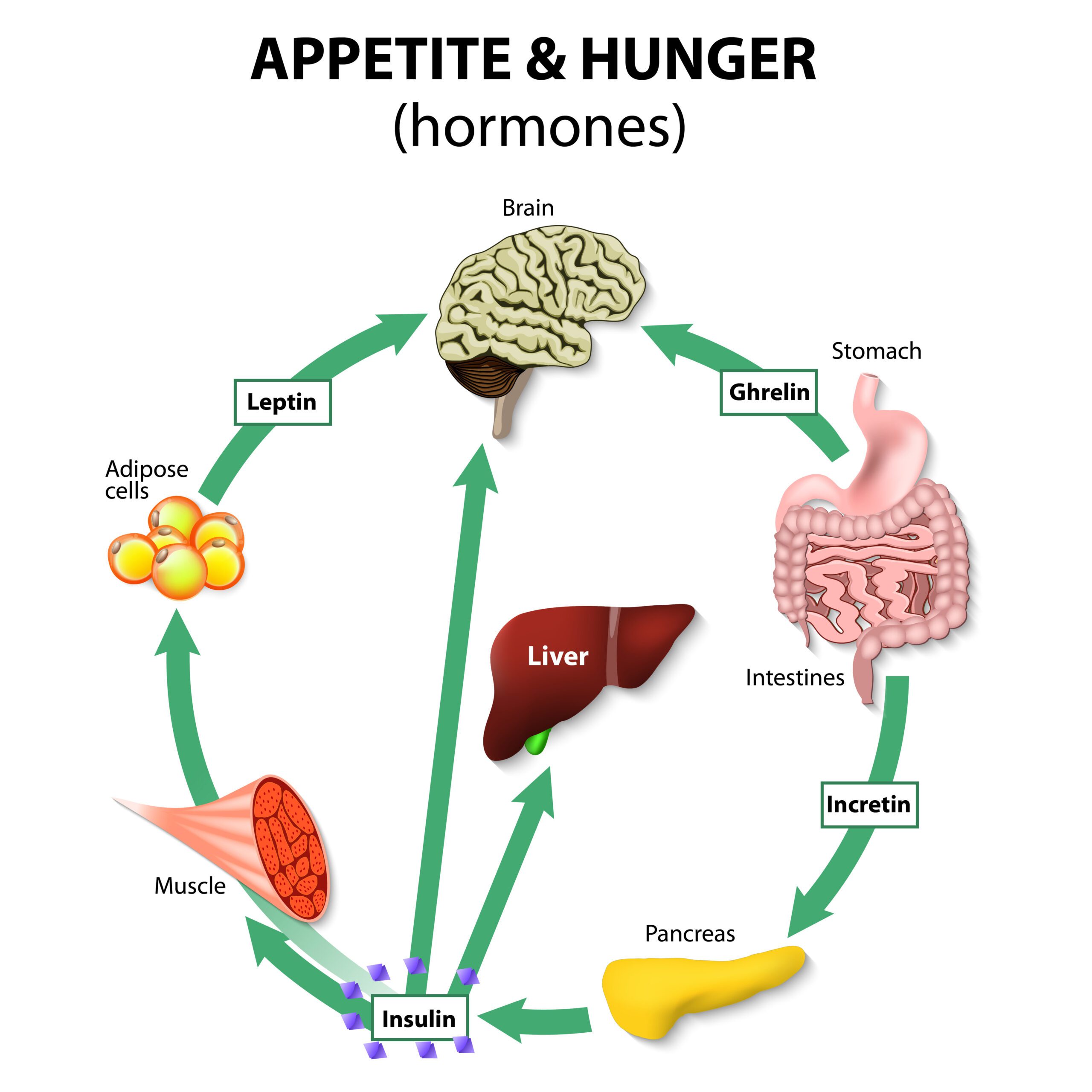Decoding Metabolic Syndrome: How the ECS Holds the Key
December 21, 2023
 530
530 
Welcome to an enlightening exploration of a lesser-known yet pivotal player in our health: the endocannabinoid system (ECS).
This intricate network within our bodies might be famous for its links to cannabis, but its role extends far beyond.
Today, we’re diving into how the ECS crucially impacts metabolic syndrome – a term you might have heard in relation to heart disease, stroke, and diabetes.
Metabolic syndrome isn’t just a single condition; it’s a cluster of risk factors – high blood pressure, elevated blood sugar, excess body fat around the waist, and abnormal cholesterol or triglyceride levels – that significantly raise your risk of serious health issues.
The ECS’s involvement in this syndrome is a groundbreaking area of study, shedding light on how we might better manage, or even prevent, these life-altering diseases.
By understanding the ECS, we unlock new perspectives in the fight against some of the most prevalent health challenges of our time.


What exactly is metabolic syndrome?
Think of it as a warning sign.
When your body shows three or more specific risk factors – like increased blood pressure, high blood sugar, excess waist fat, and abnormal cholesterol levels – it’s like an alarm system going off, indicating a higher risk for conditions like heart disease, stroke, and type 2 diabetes.
But where does the ECS fit into this?
It’s deeply intertwined with two key aspects of metabolic syndrome: insulin resistance and fat accumulation.
Insulin resistance occurs when cells in your muscles, fat, and liver don’t respond well to insulin, leading to elevated blood sugar levels.
The ECS plays a role here, influencing how these cells react to insulin.
Additionally, the ECS is involved in how and where your body stores fat, particularly around the abdomen.
An imbalance in the ECS could contribute to unhealthy fat accumulation, nudging you closer to metabolic syndrome.
Understanding the ECS’s involvement in these processes isn’t just academic; it’s a potential game-changer in managing and preventing metabolic syndrome.
Stay with us as we delve deeper into this fascinating subject and uncover how a system most known for its connection to cannabis might hold keys to safeguarding our metabolic health.


When it comes to understanding obesity, one of the key players is the endocannabinoid system (ECS).
This complex system within our bodies plays a critical role in regulating fat storage and energy balance, which are essential factors in maintaining a healthy weight.
But how exactly does the ECS impact obesity and appetite?
The ECS influences our appetite and feeding behavior through the activation of CB1 receptors located in the brain and throughout the body.
These receptors, when activated by endocannabinoids like anandamide and 2-AG, can stimulate appetite and cravings – a phenomenon often observed in cannabis users as the “munchies.”
This appetite regulation is a normal part of the ECS’s function; however, when dysregulated, it can lead to increased food intake and weight gain.
Moreover, the ECS also plays a role in how the body stores and metabolizes fat.
It influences the way our bodies convert food into energy or store it as fat.
Research has shown that overactivity of the ECS, especially increased CB1 receptor activation, is linked to obesity.
This overactivity can lead to an imbalance in energy homeostasis, where the body starts storing more fat than it burns, contributing to weight gain and obesity.
Understanding this link between the ECS and obesity opens up new possibilities for treating and preventing obesity.
By targeting the ECS, specifically through modulating CB1 receptor activity, there is potential to develop new strategies for weight management and obesity treatment.


The endocannabinoid system’s (ECS) influence extends to another critical area of metabolic health: blood sugar control.
This aspect is particularly important in the context of diabetes, a condition characterized by high blood sugar levels due to issues with insulin sensitivity or insulin production.
The ECS impacts insulin sensitivity, which is the body’s ability to respond to and use the insulin it produces.
Activation of CB1 receptors, particularly in the liver and adipose tissue, has been linked to decreased insulin sensitivity.
When these receptors are overactive, the body’s cells become less responsive to insulin, leading to higher blood sugar levels and, over time, increasing the risk of developing type 2 diabetes.
Moreover, the ECS also affects glucose metabolism.
It plays a role in processes like gluconeogenesis in the liver – the production of glucose from non-carbohydrate sources – and in the storage and breakdown of glycogen.
These functions are crucial in maintaining stable blood sugar levels.
Research indicates that dysregulation of the ECS might contribute to the development of insulin resistance and diabetes.
Elevated levels of endocannabinoids have been observed in individuals with these conditions, suggesting a link between ECS activity and metabolic disorders.
This understanding of the ECS’s role in blood sugar regulation not only sheds light on the pathophysiology of diabetes but also opens up new avenues for potential treatments.
Modulating the ECS could be a promising strategy to improve insulin sensitivity and manage diabetes more effectively, offering hope for those dealing with this increasingly common condition.
In the realm of health and wellness, the endocannabinoid system (ECS) emerges as a vital yet often overlooked component.
While traditionally associated with pain and mood regulation, recent research unveils its significant role in metabolic syndrome.
This syndrome, a cluster of conditions including increased blood pressure, high blood sugar, excess body fat around the waist, and abnormal cholesterol levels, escalates the risk of heart disease, stroke, and type 2 diabetes – some of the most prevalent health challenges today.
The intrigue lies in how the ECS influences these conditions. Delving into the ECS’s functions offers us new insights and potential strategies for managing these life-impacting diseases.
Understanding the ECS is more than academic curiosity; it’s a step towards proactive health management, offering hope in combating conditions that affect millions globally.


The influence of the endocannabinoid system (ECS) extends into a crucial aspect of health: our cardiovascular system.
Specifically, the ECS plays a significant role in managing lipid metabolism, including how the body processes and stores fats, which directly impacts cholesterol levels.
This relationship is key because cholesterol levels are major indicators of cardiovascular health.
High levels of bad cholesterol (LDL) and low levels of good cholesterol (HDL) are risk factors for heart disease.
Intriguingly, the ECS’s interaction with our lipid metabolism can either contribute to or help prevent these risks.
For example, the overactivity of the ECS, particularly through the CB1 receptors, has been linked to an increase in the production of fats in the liver.
This can lead to conditions like fatty liver disease and dyslipidemia, both of which are stepping stones to more severe cardiovascular issues, such as atherosclerosis – the buildup of plaques in the arteries.
Therefore, understanding and regulating the ECS may offer a novel approach to cardiovascular health.
By modulating the ECS, there’s potential to improve lipid profiles and reduce the risk of heart diseases, opening new doors in preventive and therapeutic strategies for cardiovascular health.


The exciting part about the ECS is that it’s not only influenced by genetics and internal body processes but also significantly affected by our daily lifestyle choices, particularly diet and exercise.
These elements can enhance or impair the functionality of the ECS, affecting our overall metabolic health.
A diet rich in omega-3 fatty acids, for instance, is believed to support a healthy ECS.
These beneficial fats, found in fish, flaxseeds, and walnuts, can influence the production and function of endocannabinoids.
On the other hand, diets high in saturated fats and sugars might disrupt the ECS, leading to an increased risk of obesity and metabolic disorders.
Similarly, regular physical activity has a positive impact on the ECS.
Exercise not only helps in maintaining a healthy weight but also enhances the levels of endocannabinoids in the body, contributing to improved mood, reduced pain, and better metabolic functions.
Making simple lifestyle changes like incorporating more omega-3-rich foods into your diet and engaging in regular physical activity can optimize the functionality of your ECS.
Such modifications can be a natural and effective way to improve metabolic health, demonstrating how lifestyle choices play a pivotal role in managing the complex interplay of our body’s systems.


As we reach the end of our exploration, it’s clear that the endocannabinoid system (ECS) is not just a peripheral aspect of our health; it’s central to managing and understanding metabolic syndrome.
The ECS’s intricate involvement in processes like fat storage, insulin resistance, blood sugar regulation, and lipid metabolism places it at the heart of addressing conditions that lead to heart disease, stroke, and diabetes.
The potential of the ECS as a therapeutic target is immense.
Current research and future investigations into ECS-based treatments offer promising avenues for managing metabolic syndrome.
This could mean developing medications that specifically target ECS pathways or using cannabinoid-based therapies to regulate its functions.
Moreover, as we’ve seen, lifestyle interventions such as diet and exercise can positively influence the ECS, providing a holistic approach to improving metabolic health.
Looking ahead, the horizon is bright with possibilities.
The more we understand the ECS, the better equipped we are to develop effective treatments and preventive strategies.
The ECS stands as a testament to the complexity and wonder of our bodies, a system that, when understood and properly managed, can lead to better health outcomes for individuals struggling with metabolic syndrome and its associated risks.
In conclusion, the ECS offers a promising frontier in the realm of health and wellness.
Its role in metabolic syndrome is just one facet of its importance, underscoring the need for continued research and a deeper understanding of this intricate system.
The journey of unraveling the mysteries of the ECS is ongoing, and its potential to revolutionize the way we approach metabolic health is an exciting prospect for the future.


In recent years, the quality and authenticity of olive oil have come under scrutiny, with shocking revelations about widespread fraud in the industry. A groundbreaking episode of the popular news program “60 Minutes” shed light on this issue, exposing a disturbing trend of adulteration in many well-known olive oil brands The “60 Minutes” Investigation The […]


The American food system is facing a critical challenge that has been decades in the making. A regulatory loophole from the 1950s has allowed food companies to operate with minimal oversight, potentially exposing consumers to thousands of untested chemicals in their daily diets. This situation has created a significant public health concern that demands immediate […]


This is outrageous and a serious threat to the human brain! Look at these headlines! Recent scientific studies have revealed alarming evidence of nanoplastic accumulation in various human organs, with the most shocking findings related to the brain. A preprint study from early 2024 found particularly concerning levels of microplastics in human brain samples Brain […]